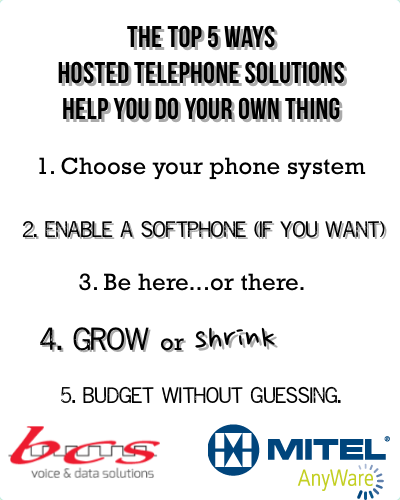Looking for a New Business Phone System? 10 Terms to Know.
When on the hunt for a new business phone system, navigating the waters of technical jargon can be exhausting, limiting and just plain frustrating. Whether you are thinking of investing in a cloud-based solution, a premise-based solution or even one of our used business phone systems to pair with your existing infrastructure, we’ve compiled ten key industry terms to help guide your search.

- Auto attendant- a virtual receptionist that can run a phone system even in the event of network downtime. Directs callers toward their desired extensions and often has the capability, if the desired party is out of office, to direct said caller to the extension’s mobile device (see “mobile twinning”).
- Cloud-based business phone system- Also known as a hosted phone system or hosted PBX (private branch exchange), a cloud-based business phone system stores all communications data wirelessly in the cloud. Requires subscription to a cloud-based VoIP PBX service like Mitel AnyWare and generally has fixed monthly charges on a per-user basis. Usually managed via a graphical user interface. (See: 5 Ways Hosted Telephone Solutions Can Help You Do Your Own Thing)
- Hosted PBX- See “Cloud-based business phone system.”
- IP address- Internet protocol address. A series of numbers assigned to each device on a network. Can be either dynamic or static (fixed).
- Mobile twinning- A phone system’s capability to direct a call from a user’s desktop phone or softphone to his or her mobile device.
- On-premise PBX- Traditional Private Branch Exchange analog technology with hardware and connectivity maintained on site.
- On-premise IP PBX- Uses on-site SIP trunking to make calls and otherwise communicate over the Internet (VoIP). Communications costs vary month-to-month based on usage.
- SIP Trunking- Stands for “Session Initiation Protocol.” Acquired through an IP service provider, SIP trunking allows companies with IP-PBX phone systems to place calls outside of the office environment over the Internet.
- Softphone- Generally a Unified Communications client, a Softphone allows the user to place and receive phone calls from the desktop of their PC, just as they would from a desktop phone unit. (See our recent product profile on Mitel’s MiCollab Client Softphone)
- Unified communications- Refers to the strategic integration of phone, instant messaging, video conferencing and other communication channels over the Internet through the private network.
Call or contact BCS to talk to an expert who can answer your questions about bettering your business’ communication potential. We’ll offer you advice, perspective and, most importantly, solutions.

